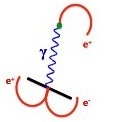The unlucky fact that our current form of mechanistic materialism rests on muddled, outdated notions of matter isn't often mentioned today. It's a mess that can be ignored for everyday scientific purposes, but for our wider thinking it is getting very destructive. We can't approach important mind-body topics such as consciousness or the origins of life while we still treat matter in 17th-century style as if it were dead, inert stuff, incapable of producing life. And we certainly can't go on pretending to believe that our own experience – the source of all our thought – is just an illusion, which it would have to be if that dead, alien stuff were indeed the only reality.
We need a new mind-body paradigm, a map that acknowledges the many kinds of things there are in the world and the continuity of evolution. We must somehow find different, more realistic ways of understanding human beings – and indeed other animals – as the active wholes that they are, rather than pretending to see them as meaningless consignments of chemicals.
Rupert Sheldrake, who has long called for this development, spells out this need forcibly in his new book. He shows how materialism has gradually hardened into a kind of anti-Christian faith, an ideology rather than a scientific principle, claiming authority to dictate theories and to veto inquiries on topics that don't suit it, such as unorthodox medicine, let alone religion. He shows how completely alien this static materialism is to modern physics, where matter is dynamic. And, to mark the strange dilemmas that this perverse fashion poses for us, he ends each chapter with some very intriguing "Questions for Materialists", questions such as "Have you been programmed to believe in materialism?", "If there are no purposes in nature, how can you have purposes yourself?", "How do you explain the placebo response?" and so on.
In short, he shows just how unworkable the assumptions behind today's fashionable habits have become. The "science delusion" of his title is the current popular confidence in certain fixed assumptions – the exaltation of today's science, not as the busy, constantly changing workshop that it actually is but as a final, infallible oracle preaching a crude kind of materialism.
In trying to replace it he needs, of course, to suggest alternative assumptions. But here the craft of paradigm-building has chronic difficulties. Our ancestors only finally stopped relying on the familiar astrological patterns when they had grown accustomed to machine-imagery instead – first becoming fascinated by the clatter of clockwork and later by the ceaseless buzz of computers, so that they eventually felt sure that they were getting new knowledge. Similarly, if we are told today that a mouse is a survival-machine, or that it has been programmed to act as it does, we may well feel that we have been given a substantial explanation, when all we have really got is one more optional imaginative vision – "you can try looking at it this way".
That is surely the right way to take new suggestions – not as rival theories competing with current ones but as extra angles, signposts towards wider aspects of the truth. Sheldrake's proposal that we should think of natural regularities as habits rather than as laws is not just an arbitrary fantasy. It is a new analogy, brought in to correct what he sees as a chronic exaggeration of regularity in current science. He shows how carefully research conventions are tailored to smooth out the data, obscuring wide variations by averaging many results, and, in general, how readily scientists accept results that fit in with their conception of eternal laws.
He points out too, that the analogy between natural regularities and habit is not actually new. Several distinctly non-negligible thinkers – CS Peirce, Nietzsche, William James, AN Whitehead – have already suggested it because they saw the huge difference between the kind of regularity that is found among living things and the kind that is expected of a clock or a calcium atom.
Whether or no we want to follow Sheldrake's further speculations on topics such as morphic resonance, his insistence on the need to attend to possible wider ways of thinking is surely right. And he has been applying it lately in fields that might get him an even wider public. He has been making claims about two forms of perception that are widely reported to work but which mechanists hold to be impossible: a person's sense of being looked at by somebody behind them, and the power of animals – dogs, say – to anticipate their owners' return. Do these things really happen?
Sheldrake handles his enquiries soberly. People and animals do, it seems, quite often perform these unexpected feats, and some of them regularly perform them much better than others, which is perhaps not surprising. He simply concludes that we need to think much harder about such things.
Orthodox mechanistic believers might have been expected to say what they think is wrong with this research. In fact, not only have scientists mostly ignored it but, more interestingly still, two professed champions of scientific impartiality, Lewis Wolpert and Richard Dawkins, who did undertake to discuss it, reportedly refused to look at the evidence (see two pages in this book). This might indeed be a good example of what Sheldrake means by the "science delusion".
1206 wds• Mary Midgley's The Solitary Self: Darwin and the Selfish Gene is published by Acumen.
The Science Delusion by Rupert Sheldrake
Review by Mary Midgely
Moderators: kiore, Blip, The_Metatron
The Science Delusion by Rupert Sheldrake
http://www.guardian.co.uk/books/2012/ja ... ake-review
- The Plc
- THREAD STARTER
- Posts: 814
Re: The Science Delusion by Rupert Sheldrake
Pseudoscientific wibble.
I'm not an atheist; I just don't believe in gods :- that which I don't belong to isn't a group!
Religion: Mass Stockholm Syndrome
Learn Stuff. Stuff good. https://www.coursera.org/
Religion: Mass Stockholm Syndrome
Learn Stuff. Stuff good. https://www.coursera.org/
-

Spearthrower - Posts: 33854
- Age: 47

- Country: Thailand
Re: The Science Delusion by Rupert Sheldrake
He's the 'morphic field' bloke if I remember correctly....


Scarlett and Ironclad wrote:Campermon,...a middle aged, middle class, Guardian reading, dad of four, knackered hippy, woolly jumper wearing wino and science teacher.
-

campermon - RS Donator
- Posts: 17444
- Age: 54


Re: The Science Delusion by Rupert Sheldrake
You do indeed remember correctly.
Scousers in Bootle discover a new way to get into Mondeos.
Scousers who've moved down to "that London" immediately know the same techniques.
Morphic resonance in action.
A soul in tension that's learning to fly
Condition grounded but determined to try
Can't keep my eyes from the circling skies
Tongue-tied and twisted just an earthbound misfit, I
Condition grounded but determined to try
Can't keep my eyes from the circling skies
Tongue-tied and twisted just an earthbound misfit, I
-

twistor59 - RS Donator
- Posts: 4966


Re: The Science Delusion by Rupert Sheldrake
Correct, and Mary Midgely's the wibblefield chick.
Made of Stars, by Neil deGrasse Tyson and zenpencils
“Be humble for you are made of earth. Be noble for you are made of stars” - Serbian proverb
“Be humble for you are made of earth. Be noble for you are made of stars” - Serbian proverb
-

Made of Stars - RS Donator
- Name: Call me Coco
- Posts: 9835
- Age: 55

- Country: Girt by sea

Re: The Science Delusion by Rupert Sheldrake
Whenever I hear the word 'paradigm', I reach for my revolver. I'd love to know how Midgely merits such a platform for her articles - which never seem to amount to more than vacuous and confused science bashing dressed up in meaningless philosophical cant. She's not particularly famous, or acclaimed. I don't see any evidence that her books and ideas have made any impact, even in academic circles. Judging by the response she receives here in the comments section, no one respects her as any kind of public intellectual. Her comprehension and coherence would shame an uncaring 15 year old who just failed their GCSE English exam. Why is she routinely trotted out (usually by the Guardian) once in a while to nauseate readers of the science section in national media outlets?
- The Plc
- THREAD STARTER
- Posts: 814
Re: The Science Delusion by Rupert Sheldrake
I'm no fan of Sheldrake as some of you may now, but it is an excellent book, though the first two Chapters all you really need to read. Have not read the review by Midgeley yet. It has glaring flaws, but is an equally and oppositely bad book to Wiseman's Paranormality - a sort of polar opposite. Sheldrake's book is more important, but less readable. Full review to follow at some point.
j x
j x
Yours sincerely, Jerome -- a threat to reason & science
I am an Anglican Prejudice declared - My blog: http://jerome23.wordpress.com/
I am an Anglican Prejudice declared - My blog: http://jerome23.wordpress.com/
-

jerome - Name: CJ
- Posts: 2047
- Age: 54

- Country: UK

Re: The Science Delusion by Rupert Sheldrake
Whenever I hear the word 'paradigm', I reach for my revolver.
Blimey, beat me to it. It would be like some kind of wild west shoot out with everyone shooting the same way!
Its one of those words that sets an alarm bell off screaming "What follows is likely to be word salad" IMO its second only to someone supposedly overthrowing all of a scientific field with their own untestable hypothesis and then naming said hypothesis after themselves.
The Feynman Problem-Solving Algorithm
1. Write down the problem.
2. Think very hard.
3. Write down the answer.
1. Write down the problem.
2. Think very hard.
3. Write down the answer.
-

Jumbo - Posts: 3599
- Age: 44


Re: The Science Delusion by Rupert Sheldrake
Timely article and not an entirely unexpected response.
My Blog: http://theusualspin.wordpress.com/
- advaitya
- Posts: 323
- Age: 41

- Country: India

Re: The Science Delusion by Rupert Sheldrake
The Plc wrote: He has been making claims about two forms of perception that are widely reported to work but which mechanists hold to be impossible: a person's sense of being looked at by somebody behind them
After reading about Rosicrucians in the backs of cheap magazines in my youth I experimented on trains and busses. I report that I had no success despite intense and extended staring. Obviously, I lack the talent. Or something.
the power of animals – dogs, say – to anticipate their owners' return. Do these things really happen?
Undoubtedly, after all, my cat of the 70s did this. Only a crass materialist might suggest that a cat or dog might have little difficulty picking out an engine note far away, when even I can pick a revving Alfa two streets away, not to mention the fact that such animals have a very good sense of time, and their biassed observers with their own Morton's Demon beavering away.
Sheldrake handles his enquiries soberly.
Good to hear he was not pissed at the time. Does he have any evidence, though?
sinisterly annoying theists
-

Xeno - Posts: 715

- Country: Australia

Re: The Science Delusion by Rupert Sheldrake
"Paradigm" is a universally horrible word. Does it all go back to Kuhn? Because it's now lingo for rants about mainstream science. It's lingo in the business world. And my first encounter with the term was in computing, where it remains a steadfast buzzword.Jumbo wrote:Whenever I hear the word 'paradigm', I reach for my revolver.
I think the word in computing is used as follows:
A) The stuff you're doing is kind of the same but kind of different to the stuff I'm doing.
B) Exactly, we're using different paradigms.
A) That clears up everything.
Maybe that's how it's used to talk about science too.
Here we go again. First, we discover recursion.
- VazScep
- Posts: 4590

Re: The Science Delusion by Rupert Sheldrake
Frankly, I am at ease with paradigm. It's the ugly "parameter" that makes my rectum twitch.
My Blog: http://theusualspin.wordpress.com/
- advaitya
- Posts: 323
- Age: 41

- Country: India

Re: The Science Delusion by Rupert Sheldrake
VazScep wrote:"Paradigm" is a universally horrible word. Does it all go back to Kuhn? Because it's now lingo for rants about mainstream science. It's lingo in the business world. And my first encounter with the term was in computing, where it remains a steadfast buzzword.Jumbo wrote:Whenever I hear the word 'paradigm', I reach for my revolver.
I think the word in computing is used as follows:
A) The stuff you're doing is kind of the same but kind of different to the stuff I'm doing.
B) Exactly, we're using different paradigms.
A) That clears up everything.
Maybe that's how it's used to talk about science too.
Yep, Kuhn has a lot to answer for. His use of paradigm is basically that people tend to treat new discoveries as exceptions to existing theories and you've got to wait for them to die of old age before new theories that offer a better and more integrated explanation can take hold, that being the new paradigm.
Personally, I'd think that it'll be Midgley and Sheldrake's supposed "paradigms" that will die with them, and not anyone else's.
"Last night was the most horrific for Kyiv since, just imagine, 1941 when it was attacked by Nazis."
- Sergiy Kyslytsya
- Sergiy Kyslytsya
-

Matt_B - Posts: 4888

- Country: Australia

-

JoeB - RS Donator
- Name: Johan
- Posts: 1463
- Age: 37

- Country: European Union (NL)

Re: The Science Delusion by Rupert Sheldrake
Mary Midgely wrote:We can't approach important mind-body topics such as consciousness or the origins of life while we still treat matter in 17th-century style as if it were dead, inert stuff, incapable of producing life.
Did she just accuse materialists of treating matter as being unable to produce life? Surely the whole point of materialism is that matter can and does produce life.
-

logical bob - Posts: 4482


Re: The Science Delusion by Rupert Sheldrake
logical bob wrote:Mary Midgely wrote:We can't approach important mind-body topics such as consciousness or the origins of life while we still treat matter in 17th-century style as if it were dead, inert stuff, incapable of producing life.
Did she just accuse materialists of treating matter as being unable to produce life? Surely the whole point of materialism is that matter can and does produce life.
I think that Mary Midgely is one of our most important and useful philosophers, but I can't agree with her on that point at all.She seems to be picking an argument with contemporary 'materialists' by addressing ones who are long gone. Its like running away from a dragonfly because his ancestors were enormous.
- Ian Tattum
- Posts: 1571

Re: The Science Delusion by Rupert Sheldrake
Sheldrake is merely another one of a long line of crackpots, who engage in venting of steam of this sort, because they can't persuade the editors of Nature to give their assorted brands of lunacy the oxygen of publicity. That line about matter being "dead" and "unable to produce life" really does show the level of palsied ignorance of real science emanating from these quarters.
Signature temporarily on hold until I can find a reliable image host ...
-

Calilasseia - RS Donator
- Posts: 22632
- Age: 62

- Country: England

Re: The Science Delusion by Rupert Sheldrake
jerome wrote:I'm no fan of Sheldrake as some of you may now, but it is an excellent book, though the first two Chapters all you really need to read. Have not read the review by Midgeley yet. It has glaring flaws, but is an equally and oppositely bad book to Wiseman's Paranormality - a sort of polar opposite. Sheldrake's book is more important, but less readable. Full review to follow at some point.
j x
Ignoring the conflation of materialism with science, does Sheldrake's position really pose questions like these:
"Questions for Materialists", questions such as "Have you been programmed to believe in materialism?", "If there are no purposes in nature, how can you have purposes yourself?", "How do you explain the placebo response?" and so on.
and expect for there to be some difficulty in answering them? The philosophy behind materialism is quite interesting and there are a number of challenging questions that can be useful to present to materialists (either as an attempt to disprove their position, or to get them to solidify it by strengthening their understanding), but those questions presented aren't challenging or even particularly related to materialism...
- Mr.Samsa
- Posts: 11370
- Age: 38
Who is online
Users viewing this topic: No registered users and 1 guest

